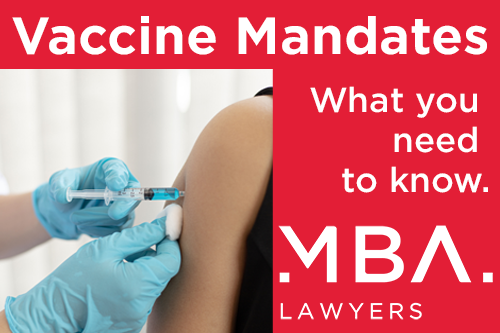The “Queensland’s Public Health Measures linked to vaccine status – a plan for 80% and beyond” (https://www.covid19.qld.gov.au/__data/assets/pdf_file/0021/220377/DPC7976-Vaccine-status-plan.pdf) was released on 9 November 2021. The plan outlines the measures that will take effect in Queensland from 17 December 2021, or once the rate of eligible Queenslanders reaches a fully vaccinated[1] rate of 80%, whichever is the sooner.
- Overview
Under the plan only fully vaccinated staff and customers (and anyone under 16 years of age and those granted a medical exemption) would be permitted to attend:
- hospitality venues such as hotels, pubs, clubs, taverns, bars, restaurants, cafés;
- indoor entertainment venues including nightclubs, concerts, theatres and cinemas;
- outdoor entertainment activities such as reef excursions, theme parks and sports stadiums (including Suncorp, the Gabba, NRL, AFL, State of Origin, show grounds, and racecourses);
- government-owned galleries, museums and libraries;
- no COVID-19 limit weddings (whereas if any person in attendance is unvaccinated, including the wedding party, then the maximum amount of people will be capped at 20); and
- vulnerable settings such as aged care, hospitals, prisons and disability services (unvaccinated people would only be able to visit such premises for the purposes of end of life, childbirth, or emergency situation).
The implementation of the proposed restrictions will inevitably impact a wide cross section of Queensland businesses. We recommend that employers in the flagged industries consider what actions should be taken ahead of the planned measures being implemented. The focus of this article is on the subject matter of employers mandating employees’ vaccinations.
- Employer mandated vaccinations
Employers may require that their employees be vaccinated in instances where:
- a particular law prescribes certain employees be vaccinated (such as Queensland Government public health directions);
- vaccination is expressly permitted under an award, enterprise agreement, other registered agreement, or employment contract; or
- an employer’s direction is lawful and reasonable, which would be assessed on a case-by-case basis.
Reliance on any one or more of the above grounds as a basis for implementing mandatory vaccination requirements upon employees do however pose significant legal risks. Employers should therefore always obtain independent legal advice prior to implementing any mandatory vaccination policies on their employees.
- Recent examples of approved vaccinations directions
The question of mandatory vaccination directions has been litigated in several recent cases including:
- Kassam v Hazzard; Henry v Hazzard [2021] NSWSC 1320 (disputing inter alia whether the NSW public health orders mandating COVID-19 vaccination were lawful) wherein it was held that:
- it was beyond a court’s jurisdiction to determine the merits of the exercise of power by the Minister or the effectiveness of the COVID-19 vaccines;
- the referenced matters were issues for the decision-maker (i.e. the Minister); and
- the court's function was to determine the legal validity of the Minister’s orders, which included a consideration of whether a Minister, acting reasonably, could have considered the health orders necessary to deal with the risk to public health and its possible consequences;
- Nurses First Inc & Anor v Nurses Professional Association of Queensland v Monash Health wherein the Federal Court of Australia held inter alia that Monash Health did not need to consult with workers before taking disciplinary action; and
- Brasell-Dellow & Ors v State of Queensland, (Queensland Police Service) [2021] QIRC 356 wherein the challenges to the lawfulness of a direction given by Queensland Police Commissioner, to the staff of the Queensland Police Service (QPS) directing them to be vaccinated, failed.
- Employer mandated vaccinations
Notwithstanding, what appears to be a possible judicial inclination to favour vaccination mandates, we advise that employers should err on the side of caution and ensure that, prior to the implementation of any mandatory policy, the following minimum steps are implemented:
- consultation with employees regarding any proposed policy, ensuring that any views and concerns regarding the vaccine are encouraged and addressed;
- where possible, application of lawful employer incentives for vaccinations (employers should ensure that their communications and any incentives comply with any TGA guidance or permissions)
- prior consideration is given to whether any vaccination mandate would be lawful and reasonable (determined on a case-by-case basis for ease employee); and
- the applicability and relevance of other legal obligations including work health and safety laws, privacy obligations, workers compensation, and discrimination laws.
FOR MORE INFORMATION CLICK HERE FOR MBA LAWYERS
Disclaimer
The information in this publication is of a general nature and is not intended to address the circumstances of any specific entity or individual. Although MBA Lawyers endeavours to provide accurate and timely information, no guarantee is provided that the information is accurate at the date it published or that it will continue to be accurate in the future.
[1] A person is considered to be ‘fully vaccinated’ in instances where they have had two doses of a Therapeutic Goods Administration (TGA) recognised COVID-19 vaccine.


